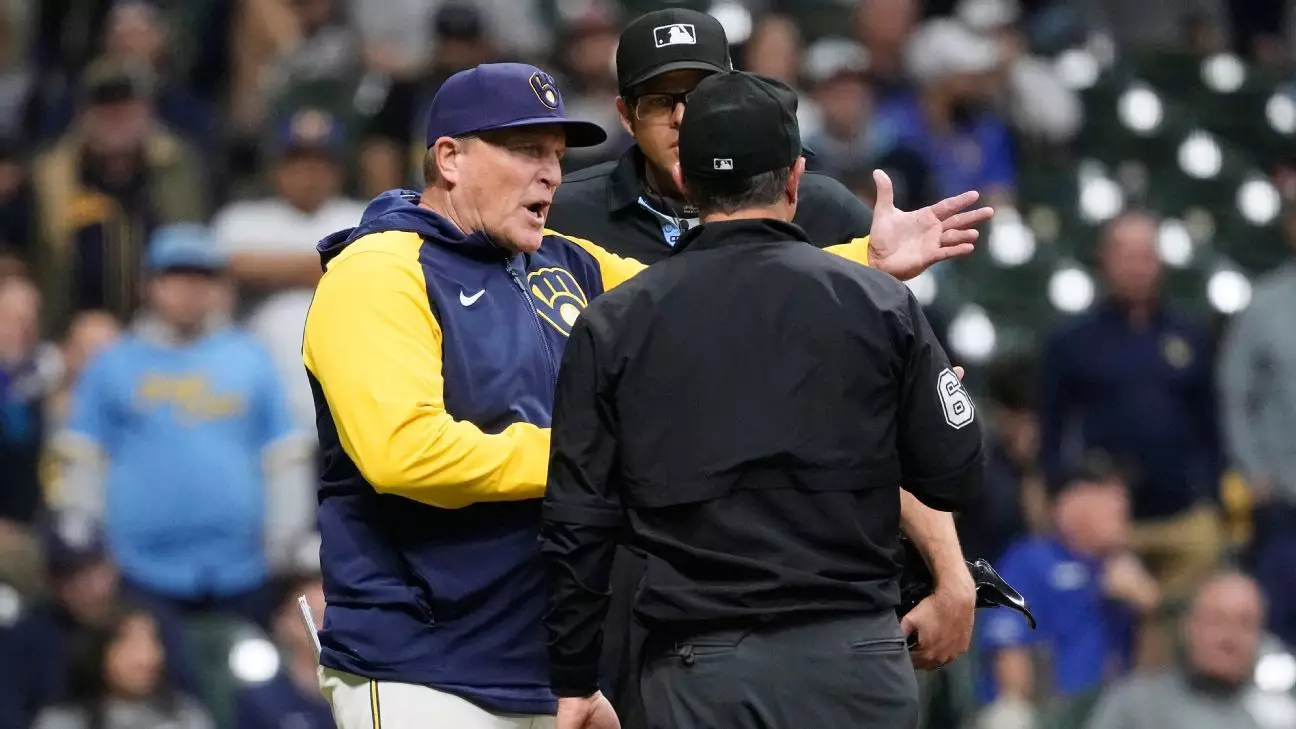During the game between the Milwaukee Brewers and the Tampa Bay Rays, a controversial call made by the umpiring crew in the ninth inning sparked debate and frustration among fans, players, and managers alike. The call involved a backswing interference ruling that nullified a potential game-tying run for the Brewers. This decision ultimately impacted the outcome of the game and left many questioning the consistency and interpretation of the rules.
According to crew chief Chris Guccione, the ruling was based on the backswing interference rule, which required the runners to return to their original bases at the time of the pitch. Despite the fact that the Brewers would have tied the game and had the winning run on third base if interference hadn’t been ruled, the umpires defended their decision as being in line with the regulations. Guccione emphasized that the backswing interference rule takes precedence in such situations, regardless of the timing or impact on the game’s outcome.
Brewers manager Pat Murphy expressed his frustration with the call and believed that his team was once again on the wrong end of a controversial ruling. Murphy argued against the interference call, claiming that Bauers’ backswing didn’t affect Pinto until after the ball had passed the catcher. He contended that the decision was a mistake and criticized the umpires for changing the course of the game with their interpretation of the rule. Despite his arguments, the call stood, leading to the Brewers’ defeat.
Both René Pinto and other players involved in the play shared their perspectives on the incident. Pinto, the Rays catcher, mentioned that he didn’t experience any physical discomfort following the backswing hitting his helmet. He described the play as a unique experience for him, indicating that such occurrences were uncommon in his career. The players’ reactions to the call varied, with some acknowledging the rules and others expressing disappointment over the impact it had on the game’s outcome.
Umpire Guccione reiterated the importance of enforcing the backswing interference rule, emphasizing that the timing of the contact didn’t alter its application. Despite Murphy’s arguments about the catcher’s actions and the ball’s trajectory, Guccione maintained that the ruling was consistent with the established guidelines. The umpire’s decision to uphold the call was based on their interpretation of the rule, which they believed was correctly applied in this instance.
The umpiring decision in the Brewers vs. Rays game underscored the complexities and controversies inherent in officiating sports. While the umpires defended their call based on the rules, the manager and players affected by the ruling expressed dissatisfaction and disbelief at the outcome. The incident serves as a reminder of the subjective nature of officiating and the impact it can have on the game’s result. As discussions continue about the fairness and consistency of umpiring decisions, this event stands out as a contentious moment that will be remembered for its controversial call.


Leave a Reply